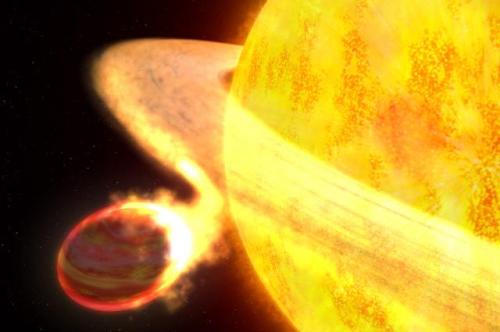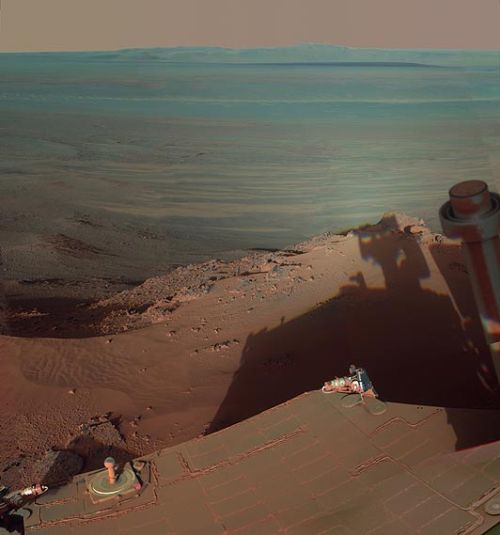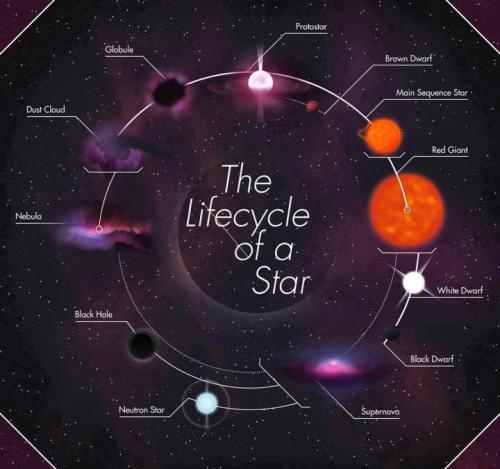What Is An Ocean But A Multitude Of Drops?
What is an Ocean but a Multitude of Drops?
I’ve been pondering the recurring notion in Young Wizards—introduced in the first book—that “even…unmagical-seeming actions” have importance in the fight against entropy. Whether it’s turning the lights off when one leaves a room, having a kind word for someone in need of encouragement, or just using the bus for transport to an alien mall crawl (“Wizards are supposed to use public transport—it’s ecologically sound!”), these little choices are no less important than galaxy-spanning fights with the Lone Power. And indeed, it’s often the little things—like Nita’s space pen or Ponch’s squirrels—that make the big victories possible.
It’s a concept that recurs in several of my other favorite works of fiction, as well. Rory’s father, Brian, from the most recent season of Doctor Who springs immediately to mind. A down-to-earth sort, Brian spends his screentime changing lightbulbs, carefully watching alien artifacts for days on end, and throwing golf balls for nearby dinosaurs to play fetch with. Unlike most of the Doctor’s associates, he doesn’t progress from these humble beginnings into something “remarkable”—he never becomes immortal or the Bad Wolf or anything like that. But instead, his very mundane habits are exactly what’s needed to save the world on multiple occasions. And when the Doctor offers to let him travel across time and space full-time, his response is simply, “Somebody’s got to water the plants.”
I bring this up because it’s a rather uncommon line of thought, on the whole. Far more common is the desire to change oneself, to journey forth from humble origins and grow into something great, to leave a mark on the world. But examples like the ones I mentioned above suggest that perhaps we’re not on the way to doing something remarkable—we already are, from one day to the next.
In the final lines of Cloud Atlas, both the book and the film (I heartily recommend either, incidentally), one of the protagonists ponders the notion that his efforts to change the world only amount to “a single drop in a limitless ocean.”
"But what is an ocean," he concludes, "but a multitude of drops?"
The same, I think, applies to all of us. We may not all be heroes or luminaries who command the destinies of millions, but within the smaller confines of our individual lives, every choice we embark upon makes a difference. And ultimately, the whole of human history is comprised of nothing else but people making decisions, many of them seemingly unimportant, one day at a time. Taken all together, though, it adds up to something remarkable. No man is an island, and every rock idly tossed into a pond produces ripples.
It’s both encouraging and terrifying to think about.
More Posts from Outofambit and Others


First-Ever High Resolution Radio Images of Supernova 1987A
On February 23, 1987, the brightest extragalactic supernova in history was seen from Earth.
Image 1: An overlay of radio emission (contours) and a Hubble space telescope image of Supernova 1987A. Credit: ICRAR (radio contours) and Hubble (image.) Image 2: Radio image at 7 mm. Credit: ICRAR Radio image of the remnant of SN 1987A produced from observations performed with the Australia Telescope Compact Array (ATCA).
Now 26 years later, astronomers have taken the highest resolution radio images ever of the expanding supernova remnant at extremely precise millimeter wavelengths.
Using the Australia Telescope Compact Array radio telescope in New South Wales, Australia, Supernova 1987A has been now observed in unprecedented detail. The new data provide some unique imagery that takes a look at the different regions of the supernova remnant.
“Not only have we been able to analyze the morphology of Supernova 1987A through our high resolution imaging, we have compared it to X-ray and optical data in order to model its likely history,” said Bryan Gaensler, Director of CAASTRO (Centre for All-sky Astrophysics) at the University of Sydney.
I had to do a "home budget" project in econ during high school, and we had to "buy a car" as part of our budget planning and so I used a listing for one of these as my "purchase" because I am nothing if not a massive nerd. It still delights me to think about. ^__^
I'm desperately trying to look for the specific model of Lotus that you referenced in the first of the Young Wizard series. I've been wanting to draw a storyboard for a long while for it and for some reason Google is useless.
It's this one: the Lotus Turbo Esprit. Lovely, lovely thing that it was...

(Sorry, the YouTube video seems to have failed to insert correctly. But check it out: https://youtu.be/CQnOusKNDKs)
...Later in the eighties they softened its lines down. But this is the one that made me stop and stare when I passed by the Lotus showroom in Manhattan in ‘81...

Fanart for the beautifully written Young Wizards fanfic What the Butterflies Said by AtypicalOwl, who I believe is @sunrisenebula here on Tumblr.

Most Amazing Exoplanets
The term ‘exoplanet’ applies to any planet outside of our solar system. At last count, we have identified 3,538.
Out of the thousands of planets we know about, some of them are incredibly bizarre compared to what we are used to seeing in our own solar system. Here are some exoplanets with very unique characteristics:
Kepler-78b
The most astounding fact about Kepler-78b is that it shouldn’t even exist, according to our current knowledge of planetary formation. It is extremely close to its star at only 550,000 miles (900,000 kilometers). As a comparison, Mercury only gets within 28.5 million miles (45.9 million kilometers) of the sun in the nearest point of orbit. With that proximity, it isn’t clear how the planet could have formed as the star was much larger when the planet formed. With its current distance, that would mean it formed inside the star, which is impossible as far as we know.
The planet itself is only slightly larger than Earth, though surface conditions are markedly different. The temperature on the surface is estimated to be 4300° F (2400° C), which is nearly nine times as hot as the temperature on Venus. Unfortunately for Kepler-78b, it is likely that the star’s gravitational pull will gradually bring the star closer and totally consume it in the next 3 billion years.
WASP-12b
While Kepler-78b still has about 3 billion more years before getting consumed by its star, the process is well underway for WASP-12b. This exoplanet is actively getting pulled apart by its parent star, much to the delight of astronomers who can watch the process unfold. So much material has been pulled away from the planet, it has been pulled into an oblong football shape. Astronomers have estimated that WASP-12b has about 10 million more years until it is completely pulled apart by the star.
The planet is described as a “hot Jupiter” as it is a gas planet that is about 40 percent larger than Jupiter. It is currently so close to its star that it only takes 1.1 Earth days for the planet to complete a full orbit. The star, WASP-12, is G-type main sequence star, just like our own sun. It is located about 800 lightyears away in the Auriga constellation.
TrES-2b
TrES-2b has been dubbed the “dark planet” because it does not reflect light. If we were able to view it directly, it would likely just look like a coal-black ball of gas. At 1800°F (1000°C) the planet is way too hot for clouds, which would help reflect the star’s light. The red tinges are areas of superheated gas. Other darker planets only reflect about 10% of the star’s light, but TrES-2b only reflects about 1%, making it the darkest planet ever discovered.
Why is TrES-2b so dark? Scientists aren’t quite sure. Right now, the best guess is that the majority of the planet’s composition is something like sodium or potassium which absorbs light. This dark world is located about 750 lightyears away in the Draco constellation.
HD 189773b
HD 189773b is pretty exciting. It is relatively close, at only 63 lightyears away. It is also the first planet to have its color determined and it turned out to be a pretty blue planet, just like Earth. Unlike Earth, however, HD 189773b is a gas giant with a temperature that reaches a sweltering 1800°F (1000°C). The weather gets more extreme, because intense pressure and temperature turns silicate particles in the atmosphere into glass, which then rains down. As if that doesn’t sound dangerous enough, the winds have been estimated to gust at 4,000 mph (7,000 km/h) which really whips those glass particles around.
55 Cancri e
55 Cancri e is twice the size of Earth but is nearly 8 times more massive and twice as dense. Last fall, researchers deduced that the mass of the planet was largely carbon. Due to the pressure and surface temperature of 4892°F (2700°C) it very well could have formed diamond. It is so close to its parent star it takes a mere 18 hours for the planet to complete a full orbit.
55 Cancri e is only about 40 light-years away from us in the Cancer constellation. The parent star is much more carbon than our own sun, so it might be too surprising that planet e is also carbon-rich. From there, it isn’t much of a stretch to assume that the other four known planets in the system would also have a high carbon content.
Because of these extreme conditions, astronomers don’t believe that 55 Cancri e has an atmosphere, making it a poor candidate for the possibility for life. However, it is close enough for astronomers to use it to test hypotheses about planetary formation.
PSR B1620-26b
Nicknamed “Methuselah,” PSR B1620-26b is the oldest known exoplanet. The planetary system formed approximately 12.7 billion years ago, when the Milky Way galaxy was in its infancy. It is located in the Scorpius constellation about 12,400 lightyears away.
Methuselah orbits binary stars and goes around them in a circumbinary orbit. As if Methuselah’s age isn’t interesting enough, the fact that it orbits two mismatched dead stars is quite unusual. One of the stars is a pulsar and the other is a white dwarf. Since Methuselah is found in a dense star cluster, astronomers initially thought it could be a star as well, and would be considered a brown dwarf. Measurements from the Hubble would confirm that Methuselah is a planet, and it remains the oldest one we’ve ever discovered.
TrES-4
Located 1,400 lightyears away in the Hercules constellation, TrES-4 is the largest exoplanet we have discovered so far. Though it is over 1.7 times the size of Jupiter, it has an extremely low density and is categorized as a “puffy” planet. The planet’s density is about the same as cork, which came as quite a shock. Astronomers attribute this to extreme heat of 2,300° F (1,260° C) due to is proximity to the star. At only 4.5 million miles (7.2 million kilometers) away from its sun, TrES-4 is able to complete an orbit in three Earth days.
Gliese 436 b
30 lightyears away in the constellation Leo, Gliese 436 b is a planet that is about as massive as Neptune. The planet also happens to be covered in burning ice - though the ice isn’t anything like what we’re used to. The extreme pressure of the planet forces the water to stay in solid form, even though the temperature exceeds 570° F (300° C). The outer layer of the solid water is superheated and comes off as vapor. Water has over 10 solid states, not including common ice.
In its present position, the water would not have been able to condense down into a solid, indicating that it migrated toward its sun after it formed.
January fanbinding - What the butterflies said


Set myself a 2023 challenge to do a bookbinding project each month for an "actual book", i.e. something with written content rather than blank paper (or where I've made the content, as i partly want to make myself figure out formatting and dealing with an externally defined length). Also trying to use different styles of binding, so some added fun there figuring out what works for each!
I've just finished a reread of the Young Wizards books, so for my first project & pamphlet bind went with a YW fic, the wonderfully heartbreaking 'what the butterflies said' by @sunrisenebula
Young Wizards is my favorite book series because where else are you going to find a book where a twelve year old, an alien elf prince, a talking tree, and a crystal centipede all get together to do surgery on the sun.
Available now for free download: "Herself"

Since tomorrow's the start of the Irish national holiday weekend with what many Irish people will refer to as The Day That's In It, this urban fantasy novella is for the next few days free for download from the Ebooks Direct store!
Set mostly in the Dublin of 2004, it contains Irish mythology, abused civic statuary, famous cemeteries, celebrated dead people, the much-mourned sushi place behind the Brown Thomas department store, seriously cranky deities, and the mysterious serial murders of numerous Fair Folk.
…By the way, though this isn't a Young Wizards work, it's set in the same universe. One scene unfolds in a space that'll be familiar to YW readers as "[the pub] where the wizards drink".
Interested?
Just head over here, shove a copy in the cart, and go through the checkout process. You won't be charged.
...And one other thing! Some of you will have seen our "Get Our Whole Store For $44!" offers, and for one reason or another haven't been able to avail yourself of them. Well, starting right now, our Tumblr folk have got another chance! (Ahead of everybody else, as the sale's not being announced to the general public on other platforms until midnight US/EST.) ...And you can even see the animated promo before everybody else! (Go on, try not to jig. I dare you.)
Details about how to get the "I Want Everything You've Got" package are over here:
Please note that if you get the Whole Store package, you won't need to download Herself separately: it's part of the package.
The usual frustrated note for our British friends: unfortunately we can't sell to you. It's a Brexit thing. Info about that is here. As always, our apologies.
And now for the jiggy bit!
Selections from Tallmadge Doyle’s ethereal Celestial Mapping Series







-
 tathracyn reblogged this · 10 years ago
tathracyn reblogged this · 10 years ago -
 whisperandletitgo liked this · 10 years ago
whisperandletitgo liked this · 10 years ago -
 sarcasm-in-cursive reblogged this · 11 years ago
sarcasm-in-cursive reblogged this · 11 years ago -
 steven-dedalus liked this · 11 years ago
steven-dedalus liked this · 11 years ago -
 wishes-and-dust liked this · 11 years ago
wishes-and-dust liked this · 11 years ago -
 theimpossibleathlete reblogged this · 11 years ago
theimpossibleathlete reblogged this · 11 years ago -
 spinner-of-stories liked this · 11 years ago
spinner-of-stories liked this · 11 years ago -
 independence1776 reblogged this · 11 years ago
independence1776 reblogged this · 11 years ago -
 brobdingus reblogged this · 11 years ago
brobdingus reblogged this · 11 years ago -
 flutterratgirl reblogged this · 11 years ago
flutterratgirl reblogged this · 11 years ago -
 outofambit reblogged this · 11 years ago
outofambit reblogged this · 11 years ago -
 emitter-of-learjets reblogged this · 11 years ago
emitter-of-learjets reblogged this · 11 years ago -
 deanspikachu liked this · 11 years ago
deanspikachu liked this · 11 years ago -
 cellatsea liked this · 11 years ago
cellatsea liked this · 11 years ago -
 k-she-rambles reblogged this · 11 years ago
k-she-rambles reblogged this · 11 years ago -
 a-singer-of-songs reblogged this · 11 years ago
a-singer-of-songs reblogged this · 11 years ago -
 brobdingus liked this · 11 years ago
brobdingus liked this · 11 years ago -
 k-she-rambles liked this · 11 years ago
k-she-rambles liked this · 11 years ago -
 jenesaispourquoi reblogged this · 11 years ago
jenesaispourquoi reblogged this · 11 years ago -
 doctorcakeray liked this · 11 years ago
doctorcakeray liked this · 11 years ago -
 imaginariumgeographica liked this · 11 years ago
imaginariumgeographica liked this · 11 years ago -
 chromatographic liked this · 11 years ago
chromatographic liked this · 11 years ago -
 lizzieraindrops reblogged this · 11 years ago
lizzieraindrops reblogged this · 11 years ago -
 astahfrith liked this · 11 years ago
astahfrith liked this · 11 years ago -
 leonaesperanza liked this · 11 years ago
leonaesperanza liked this · 11 years ago -
 topothemuffin liked this · 11 years ago
topothemuffin liked this · 11 years ago -
 citysunrise liked this · 11 years ago
citysunrise liked this · 11 years ago -
 emitter-of-learjets reblogged this · 11 years ago
emitter-of-learjets reblogged this · 11 years ago -
 sauntering-vaguely-downward liked this · 11 years ago
sauntering-vaguely-downward liked this · 11 years ago -
 okforthey reblogged this · 11 years ago
okforthey reblogged this · 11 years ago -
 okforthey liked this · 11 years ago
okforthey liked this · 11 years ago -
 alluringalliteration-blog reblogged this · 11 years ago
alluringalliteration-blog reblogged this · 11 years ago -
 alluringalliteration-blog liked this · 11 years ago
alluringalliteration-blog liked this · 11 years ago -
 emitter-of-learjets liked this · 11 years ago
emitter-of-learjets liked this · 11 years ago -
 dubiousculturalartifact reblogged this · 11 years ago
dubiousculturalartifact reblogged this · 11 years ago -
 giraffepoliceforce liked this · 11 years ago
giraffepoliceforce liked this · 11 years ago -
 songofsunset reblogged this · 11 years ago
songofsunset reblogged this · 11 years ago -
 jazzhandsmcleg reblogged this · 11 years ago
jazzhandsmcleg reblogged this · 11 years ago -
 jazzhandsmcleg liked this · 11 years ago
jazzhandsmcleg liked this · 11 years ago -
 sunrisenebula liked this · 11 years ago
sunrisenebula liked this · 11 years ago -
 sunrisenebula reblogged this · 11 years ago
sunrisenebula reblogged this · 11 years ago -
 dubiousculturalartifact liked this · 11 years ago
dubiousculturalartifact liked this · 11 years ago -
 jenesaispourquoi liked this · 11 years ago
jenesaispourquoi liked this · 11 years ago -
 evolution-revolution liked this · 11 years ago
evolution-revolution liked this · 11 years ago -
 megparsec reblogged this · 11 years ago
megparsec reblogged this · 11 years ago
A personal temporospatial claudication for Young Wizards fandom-related posts and general space nonsense.
288 posts


